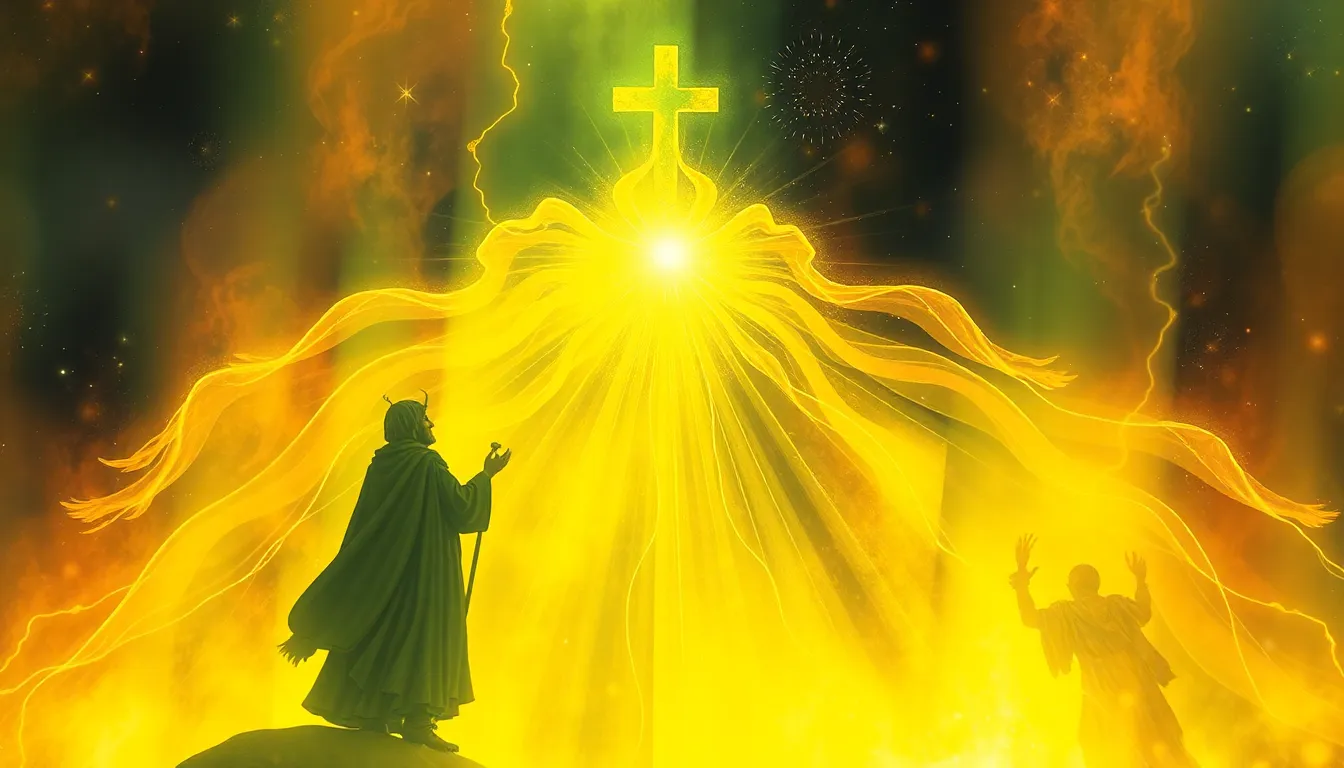The Quest for the Sacred Voice: Myths of Expression
Introduction: The Power of the Voice in Human Expression
Throughout history, the human voice has served as a powerful instrument of expression, transcending language and culture. From the chants of ancient rituals to the spoken word of today, the voice carries profound significance across diverse societies. It is not merely a tool for communication but an embodiment of identity, emotion, and spirituality. This article delves into the concept of the “sacred voice,” exploring its roots in mythology, religion, and culture.
Historical Context: Ancient Myths and the Origins of Expression
In ancient civilizations, the voice was often viewed as a divine gift, a means through which humans could connect with the gods. Many cultures attributed the origins of voice to mythical figures, believing that vocal expression was a channel for divine inspiration.
- Mesopotamia: In Sumerian mythology, the goddess Ninsun was revered as the “Lady of the Wild Cows,” who communicated through dreams and songs.
- Greek Mythology: The Muses, nine goddesses of the arts, were believed to inspire creativity and eloquence in those who honored them.
These myths reveal humanity’s long-standing reverence for the voice as a conduit of meaning and inspiration, establishing a foundation for the sacredness associated with vocal expression.
The Sacred Voice in Religious Texts and Traditions
Across various religions, vocal expression plays a pivotal role in spiritual practices. The act of speaking or singing is often imbued with sacred significance, serving as a means to connect with the divine.
- Hinduism: Chanting mantras is believed to invoke divine energy, with the sound itself considered sacred.
- Christianity: The practice of singing hymns and reciting prayers emphasizes the power of the spoken word in worship.
- Buddhism: Chanting sutras is a form of meditation and devotion, linking practitioners to the teachings of the Buddha.
These examples illustrate the diverse ways in which the sacred voice manifests in religious contexts, highlighting its importance in fostering spiritual connection and community.
Cultural Narratives: Folklore and the Voice of the Ancestors
Many cultures have rich traditions of oral storytelling that emphasize the voice as a vital link to the past. Myths and folklore often celebrate the power of the spoken word to transmit wisdom, values, and history.
- Native American Traditions: Oral history is crucial for preserving the stories of ancestors, with elders often sharing teachings through narrative.
- African Folktales: Griots or storytellers use their voices to convey the history and culture of their communities, blending music, poetry, and narrative.
These cultural narratives demonstrate how the voice can serve as a repository of collective memory, reinforcing identity and continuity within communities.
The Voice as a Symbol of Identity and Belonging
The voice is not only a means of expression but also a powerful symbol of identity. It shapes how individuals perceive themselves and how they are perceived by others.
Myths of expression often reflect the intricate relationship between voice and cultural heritage. For instance:
- Language and Dialect: Different accents and dialects signify cultural roots, creating a sense of belonging.
- Storytelling Traditions: Regional tales and proverbs convey values and beliefs, strengthening communal ties.
Through voice, individuals articulate their identities and connect with their cultural lineage, fostering a sense of belonging within their communities.
The Intersection of Voice and Nature: Myths of Communication with the Divine
Many cultures have myths that explore the interconnectedness of voice and nature, viewing the natural world as alive with sound and spirit.
For example:
- Animal Communication: Many indigenous cultures believe animals possess their own languages, and the ability to understand them is a sacred gift.
- The Voice of the Wind: In various mythologies, the wind is personified and is thought to carry messages from the divine or the ancestors.
These beliefs suggest that the voice serves as a bridge between humanity and the cosmos, reinforcing the idea that vocal expression is intertwined with the natural world.
Modern Interpretations: The Voice in Contemporary Art and Literature
In contemporary art and literature, the concept of the sacred voice continues to evolve. Artists and writers explore new dimensions of vocal expression, often reflecting on its significance in modern society.
Some notable examples include:
- Poetry: Contemporary poets often use voice to challenge societal norms and address issues of identity and belonging.
- Performance Art: Artists like Marina Abramović utilize their voices as part of immersive experiences, invoking emotional responses from audiences.
These modern interpretations highlight the enduring relevance of the sacred voice as a medium for self-expression and social commentary.
The Psychological Impact of Voice: Healing and Expression
The therapeutic aspects of vocal expression have gained recognition in recent years. Many cultures have myths and practices that associate voice with healing.
- Sound Healing: Various traditions utilize chanting and vocal toning to promote physical and emotional well-being.
- Expressive Arts Therapy: Vocal expression is often integrated into therapeutic practices to help individuals process their emotions and experiences.
These practices underline the belief that the voice has the power to heal, not only the individual but also the community.
Challenges and Controversies: The Voice of the Marginalized
While the voice can be a powerful tool for expression, it is essential to recognize the challenges faced by marginalized communities. Many individuals and groups struggle to have their voices heard in society.
Key issues include:
- Silencing of Voices: Marginalized communities often encounter systemic barriers that prevent their stories from being told.
- Representation in Myth: Myths can either reinforce stereotypes or serve as vehicles for social justice, depending on who gets to tell them.
Addressing these challenges involves advocating for inclusivity and amplifying the voices that have historically been silenced.
Conclusion: The Ongoing Quest for the Sacred Voice in a Modern World
The quest for the sacred voice is an ongoing journey that highlights the importance of vocal expression in human experience. From ancient myths to contemporary practices, the voice remains a vital element of identity, culture, and spirituality.
As we navigate the complexities of modern life, it is crucial to recognize and nurture the sacred voice within ourselves and others. Embracing the power of expression can lead to greater understanding, healing, and connection in our diverse world.



